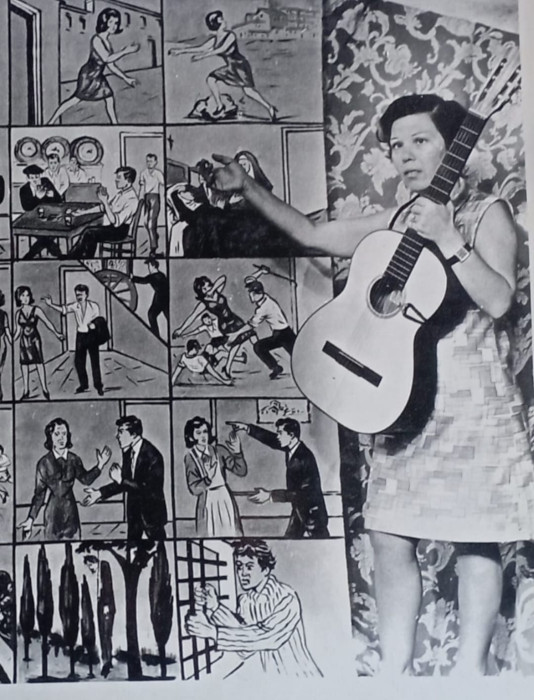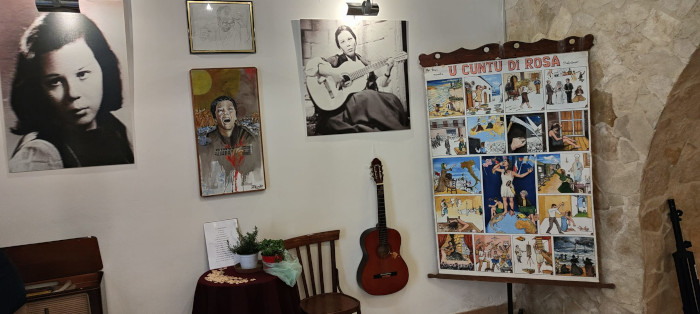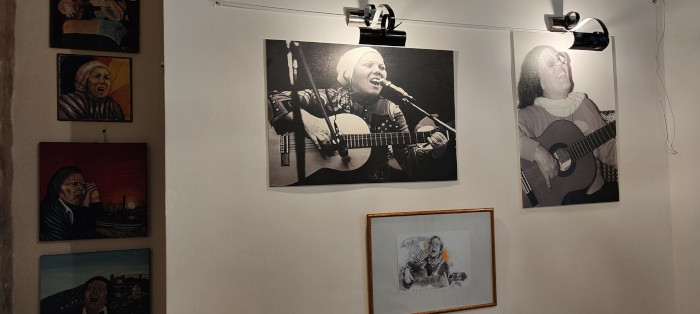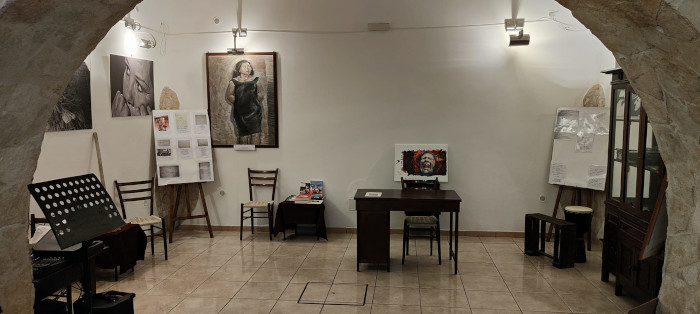A project dedicated to the memory of the Sicilian singer Rosa Balistreri
On March 21st, the inauguration of the cultural workshop “La Casa di Rosa” (“House of Rosa”) took place in Licata (in the province of Agrigento, Sicily), in memory of the Sicilian singer Rosa Balistreri, who passed away in 1990.
The cultural laboratory “La Casa di Rosa” was born from a project initiated by the Center for Sicilian and Mediterranean Culture Studies, which, with the collaboration of artists and cultural figures, is committed to preserving and revaluing the invaluable treasures of Southern Italy as the center of the Mediterranean.
The inauguration of the new cultural center in Licata, housing a museum and a library, took place on Rosa Balistreri’s birthday, commemorating her as an unforgettable human and artistic figure.

It was held in the house where the singer spent her childhood and began to sing in the alleys of the historic center, which has now become the operational headquarters of the Center for Sicilian and Mediterranean Culture Studies, from which a series of cultural and artistic promotion events and projects will be launched.
The conception and realization of the significant institution of Casa di Rosa was made possible also thanks to the troubadour Mel Vizzi and Dr. Nicolò La Perna, a biographer of Rosa Balistreri and president of the Center for Sicilian and Mediterranean Culture Studies, who played a fundamental role.
Mayor Angelo Balsamo of Licata, together with Nicolò La Perna, officially cut the ribbon of Casa di Rosa, formalizing its opening.
Numerous supporters and admirers paid tribute to the memory of the Licata singer. Additionally, balld singers and folk singers from all over Sicily and even from northern Italy performed.
The inaugural ceremony received tokens of esteem, even beyond the Italian borders, from Professor Dagmar Reichardt, a lecturer in Transcultural Studies at the Latvian Academy of Culture in Riga, Latvia.
Professor Dagmar Reichardt, a great admirer of Rosa Balistreri, expressed in a letter read aloud by the poet Piero Carbone her admiration for the Sicilian singer, her revolutionary figure emanating intense strength, her great charisma, and the splendid vitality that she still manages to convey to us today beautifully.
Video by Gloria Mas.
Furthermore, Dagmar Reichardt donated her book titled “Musical Polyphony – The Many Paths of Italian Melodies in a Transcultural World” to the library of Casa di Rosa.
Rosa Balistreri ‘returns’ to her home, which has become a cultural center open especially to young people and schools
The “Casa di Rosa” is located amidst the narrow streets of the historic center of Licata, near the port, precisely at 42 Martinez Street, where Rosa Balistreri, in her youth, barefoot and poor, began to make her pure, instinctive, mythical voice heard, while playing in the alleys or while her tears wet the floor of her humble room.
Now, the walls of that little house are adorned with large reproductions, chosen from the most beautiful, of her face, which embodies that of Mother Earth and at the same time the dramatization of tragedy.
Further embellishing the “Casa di Rosa” are portraits that recall the life of Rosa Balistreri, created by various artists who knew the singer from Licata, as well as by young artists who did not directly know her.

“We have brought Rosa back home, among those walls that now echo her voice and watch the videos of her career and her tragic and fascinating story, among her photos and the original paintings by Manfredi Lombardi (the painter who welcomed Rosa Balistreri to Tuscany and introduced her to cultural circles n.b.) who portrayed her in his masks – reads a note released by the Center for Sicilian and Mediterranean Cultural Studies on social networks – We have filled her house with her things, her memories, her essence, but above all, now we want the message that she has given us to start from there, because this is the main purpose of ‘Casa di Rosa’,” the note continues.
The Casa di Rosa: a starting point towards a new way of understanding culture and art
According to the creators of the new cultural center in Licata, “Casa di Rosa” is a symbol, a starting point towards a new way of understanding culture and art, far from rhetorical folklore and from the usual, now banal and outdated, communication methods of the last century, seeking to make the narrative of tradition contemporary with innovative forms aimed at the younger generation.
A social group and page are already active, and a website specifically dedicated to “Casa di Rosa” is in the process of being launched.
Starting from April, a guided tour service of “Casa di Rosa” will be activated, mainly aimed at young people and schools, initially by appointment and subsequently (hopefully with the support and assistance of the institutions) available every day.

The Center for Sicilian and Mediterranean Cultural Studies, which has its headquarters in “Casa di Rosa”, with its President Dr. Nicolò La Perna, benefits from the collaboration of artists and cultural figures who are working to create a reality that primarily aims to demonstrate the pride of belonging to one of the oldest and most beautiful cultures in the world, that of Sicily.
In the Board of Directors, the Artistic Direction is overseen by the Reggian singer Fulvio Cama and the Favarese Musician and Singer Antonio Zarcone, while the Licatese ballad singer Mel Vizzi, already the creator of the “Putia du Cuntastorie” (“ballad singer’s artisan shop”) in Licata, plays the role of a fundamental local reference point and Responsible for “Casa di Rosa”.
The Scientific Committee is chaired by Notary Salvatore Abbruscato and composed of: Felice Liotti, Nino Bellia, Lorenzo Alario, Raffaele Messina, and Andrea Burgio.
Related articles
A Licata un evento in memoria di Rosa Balistreri – In italian: “At Licata, an event in memory of Rosa Balistreri”.
Reccomended articles
Giuni Russo, the Sicilian singer with an extraordinary voice.

